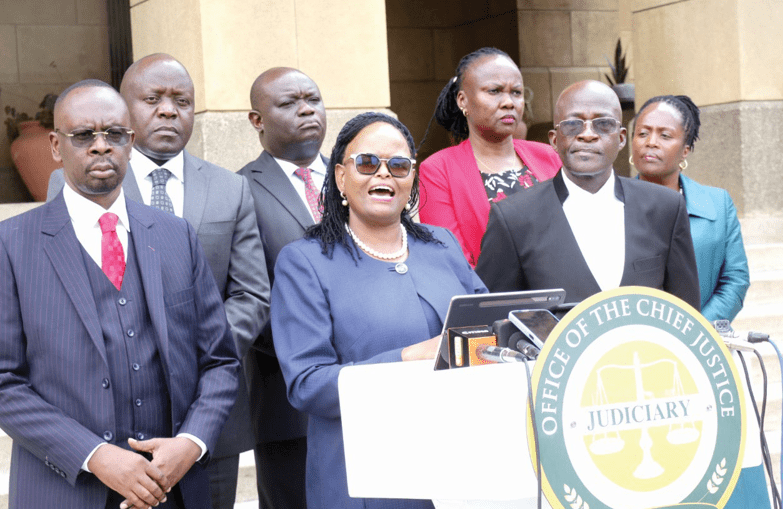Attempted suicide no longer a crime in Kenya, High Court judge rules

Attempted suicide is a mental health issue and not a criminal act, and victims should not be punished.
Justice Lawrence Mugambi declared Section 226 of the Penal Code (attempted suicide) unconstitutional for violating Articles 27, 28 and 43 of the Constitution.
“It is my finding that applying the purpose and effect principle of constitutional interpretation, Section 226 of the Penal Code offends Article 27 of the Constitution by criminalising a mental health issue thereby endorsing discrimination on the basis of health which is unconstitutional,” he ruled.
Justice Mugambi of the Constitutional Court in Constitutional petition E045 of 2022 further declared that criminalizing such attempts also indignifies and disgraces victims of suicide ideation in the eyes of the community for actions that are beyond their mental control, which is a violation of Article 28.
According to the Penal Code, any person attempting to take their own life is guilty of a misdemeanor and is subject to imprisonment of up to two years, a fine, or both, with the minimum age of prosecution set at eight years old.
“The existence of Section 226 exposes the survivors of suicide and potential victims with suicide ideation to possible reprisals thereby eroding the right to have the highest attainable standard of health envisaged in Article 43(1) of the Constitution,” he ruled.
According to Section 2 of the Mental Health Amendment Act and the Ministry of Health Policy, persons who attempt suicide are in fact victims of mental illness and not criminals who possess the requisite mens rea to commit this offence.
The Supreme Court of India had also in April 1994 also held that suicide is a psychiatric problem and not a manifestation of criminal instinct, adding that it was “a call for help.”
The Petitioners had contended that the main driving factors for attempted suicide in Kenya and globally are various undiagnosed and untreated mental health conditions as well as mental disabilities which result in suicidal thoughts that may lead to attempted suicide by persons affected.
The Petition was supported by the affidavits of Dr Bernard Mogesa for the Kenya National Commission on Human Rights (KNCHR), Charity Muturi, and Dr Boniface Chitayi on behalf of the Kenya Psychiatric Association.
Mogesa argued that the World Health Organisation ranked Kenya as the sixth African country with the highest levels of depression with at least 1.9 million diagnosed Kenyans suffering from depression.
As a result, the continued criminalisation of attempted suicide increases the stigma and trauma which ends up denying these vulnerable persons the healthcare as well as needed psychological, family and community support.
They further argued that this criminalization amounted to punishment of persons with mental disabilities, contrary to the provisions of Section 2 of the Persons with Disabilities Act and Articles 27 and 260 of the Constitution.
According to them, this criminalisation amounts to punishment of persons with mental health issues and is contrary to the constitutional requirements on the right of persons to the highest attainable standard of health care under Article 43 of the Constitution and Section 4 of the Health Act, 2017.
They also contended that the law violates the right to the highest attainable standard of health; the right to equality before the law and non-discrimination on the basis of health status and disability under Article 27 of the Constitution; and the right to human dignity protected in Article 28 of the Constitution, among others.
In her affidavit, one of the petitioners Charity Muturi, a mental health advocate who has personally struggled with bipolar disorder, detailed the challenges faced by those who experience suicidal thoughts.
“I have struggled with suicidal ideation for years,” she shared, “and the stigma that surrounds it only deepens the sense of hopelessness. The law should focus on providing care, not punishment.”
Muturi emphasized how societal rejection, including religious practices refusing to bury those who die by suicide, leaves individuals facing mental health crises even more isolated.












